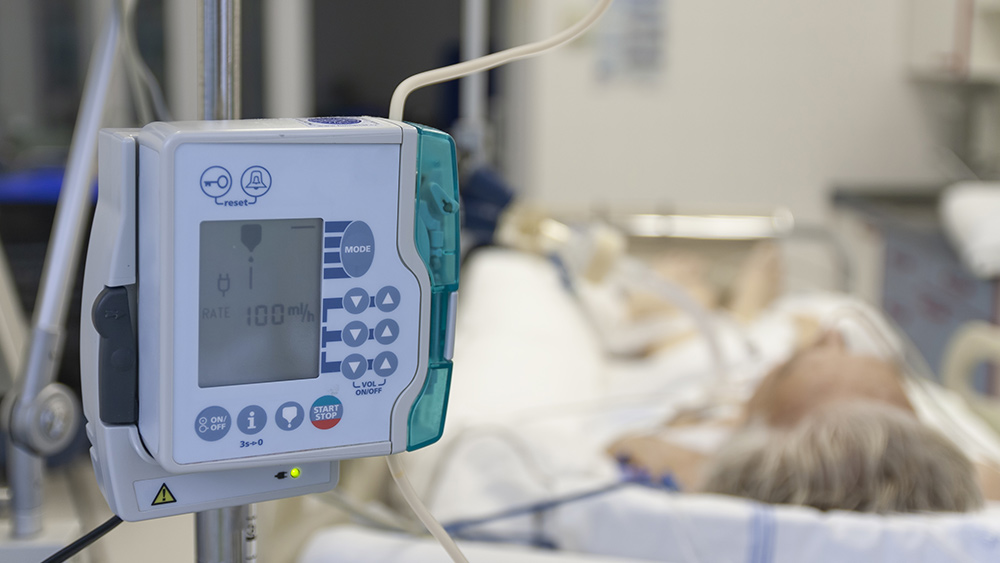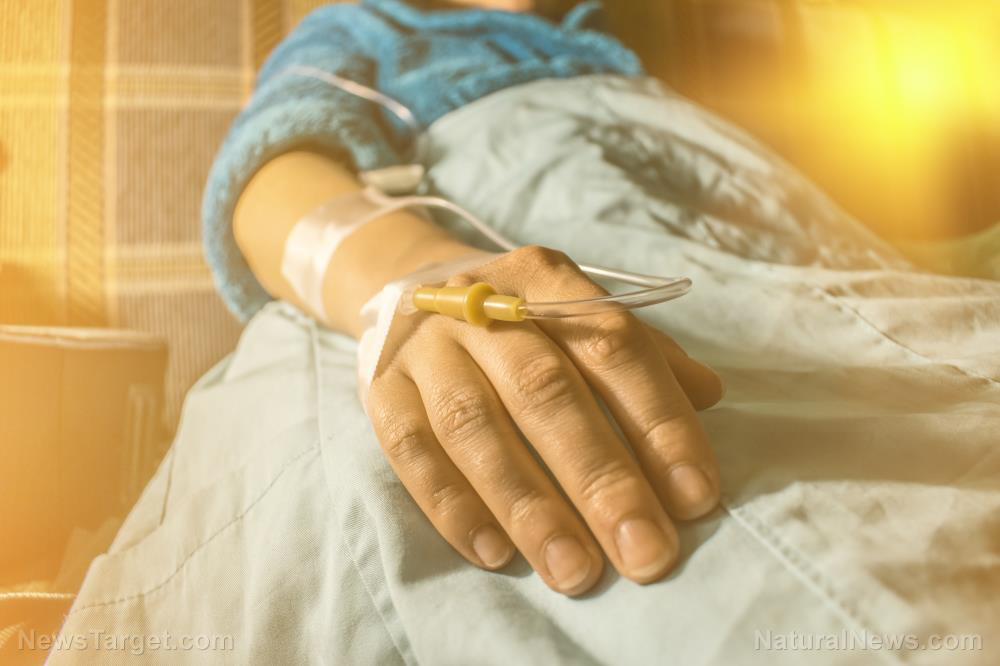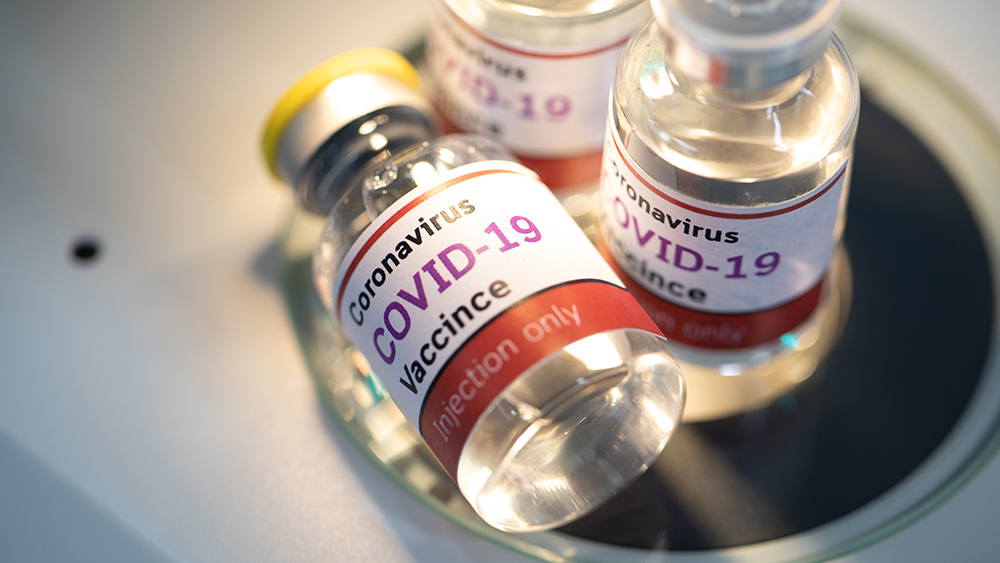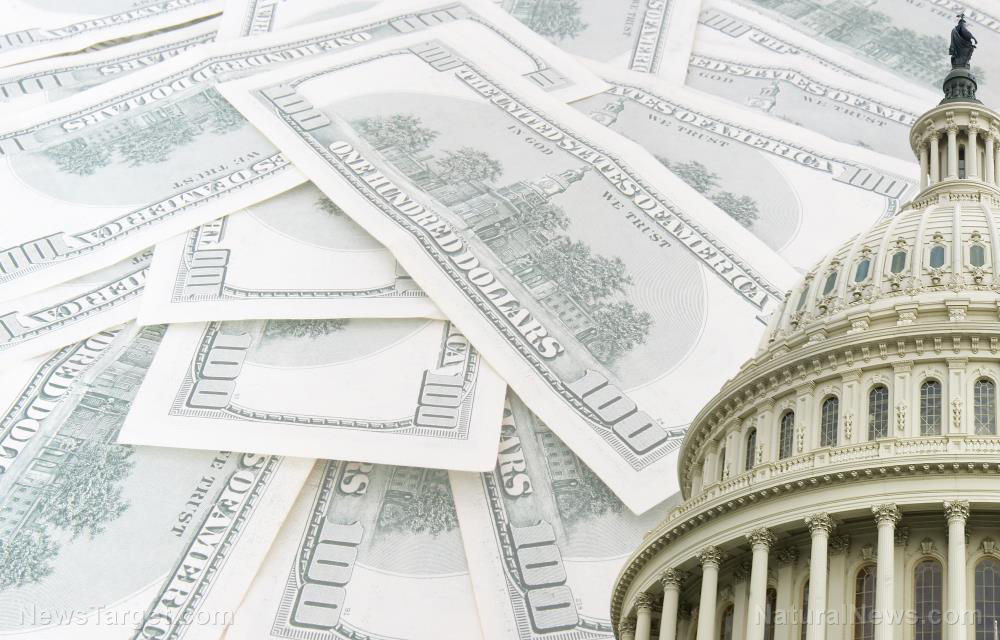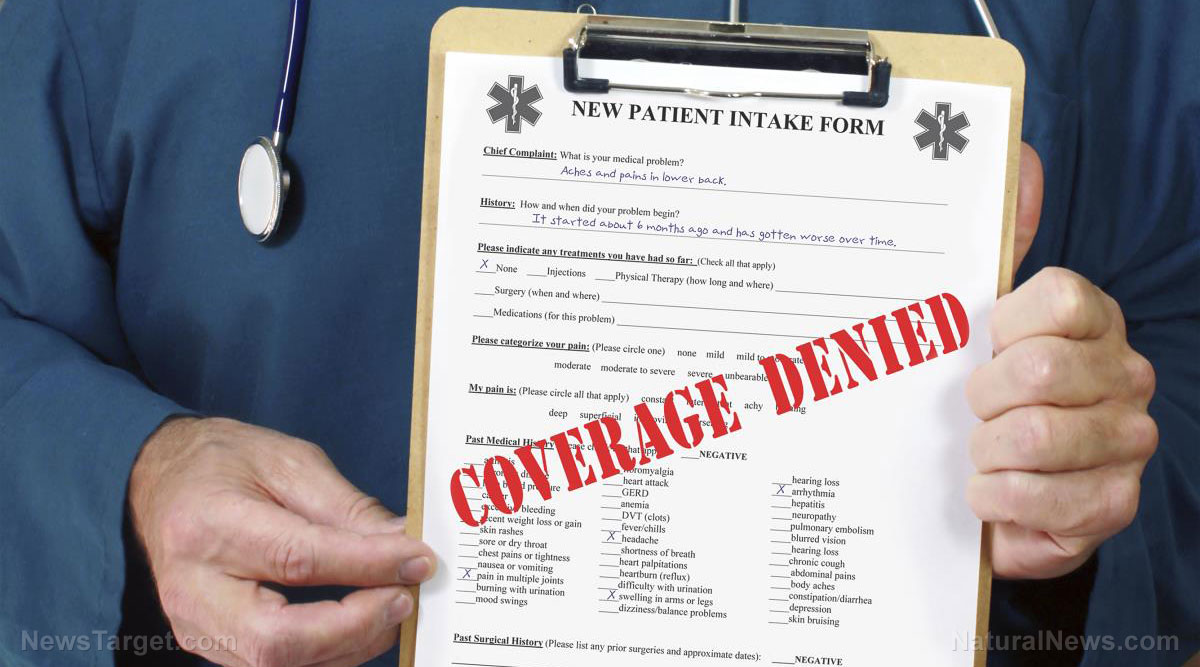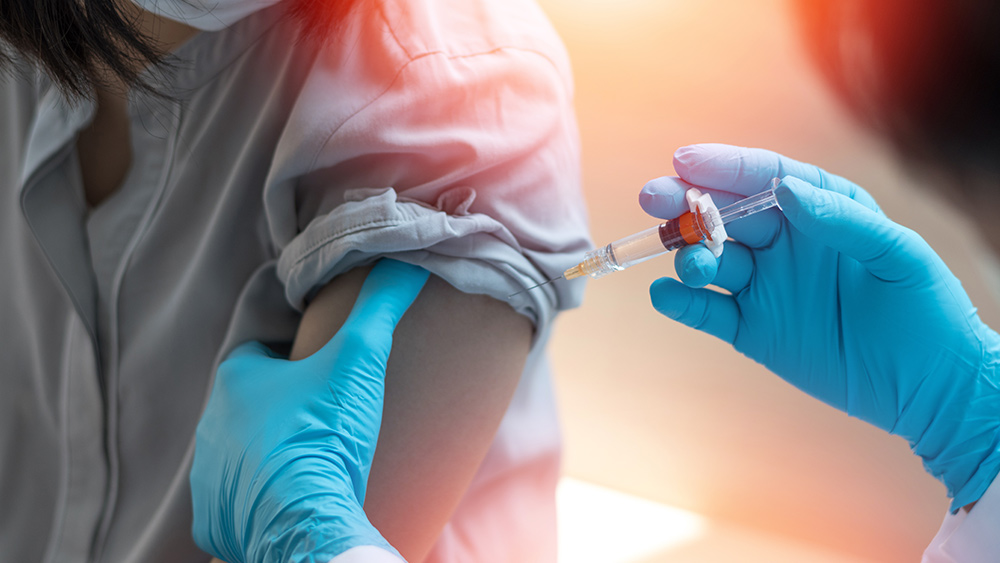HEART DAMAGE: COVID jabs cause Takotsubo cardiomyopathy, research shows
01/05/2024 / By Ethan Huff

Another heart problem linked to Wuhan coronavirus (COVID-19) “vaccination” has made it into the annals of science.
Takotsubo cardiomyopathy, the clinical presentation of which resembles that of acute myocarditis, is listed in a new study as having manifested in a 59-year-old woman who developed the disease after receiving a COVID “booster” shot.
For six hours, the patient experienced persistent dyspnea, prompting her to visit an emergency room. The woman told hospital workers she developed consistent chest pain in the two days prior, which she described as a stabbing sensation that got progressively worse with each subsequent episode.
Physical exertion worsened the pain, the woman revealed, and there was no relief method she could come up with to help her feel better. The woman had taken a booster shot from Moderna, one of the two providers of mRNA (modRNA) COVID injections.
Though the woman remained conscious with a blood oxygen saturation of 89 percent and blood pressure of 150/90 mmHg, attending physicians detected crackling and rattling sounds in her lungs, a phenomenon known as crepitations.
The woman tested “negative” for COVID using a polymerase chain reaction (PCR) test, while an emergency electrocardiogram showed ST-segment elevation. A chest X-ray also revealed pulmonary edema, while an ultrasound showed reduced left ventricular systolic function with an estimated ejection fraction of 30 percent.
The attending medical team eventually administered intravenous injections of norepinephrine and dobutamine as treatment. When no other etiologies were identified, the woman was officially diagnosed with Takotsubo cardiomyopathy.
(Related: Leaked evidence shows the blueprints for a planned release of a deadly COVID bioweapon.)
Skip the jabs and save your heart
On the sixth day, the patient improved somewhat and was discharged, though she continued to experience persistent tachycardia, requiring treatment with metoprolol, a medication prescribed for high blood pressure.
Before ever getting injected, the woman suffered a history of hyperlipidemia, hypothyroidism and celiac disease. She was also a smoker for five years, but had quit in the 15 years prior to getting injected for COVID. She had no history of alcohol consumption or drug abuse.
Though the researchers stated that the physiopathology of COVID jab-induced Takotsubo cardiomyopathy cannot definitively be proven, they did admit that “several theories have been proposed.”
For some individuals, they stated, the immune response triggered by COVID injections may “result in an exaggerated inflammatory cascade, leading to endothelial dysfunction, microvascular dysfunction and myocardial injury.”
“Vaccination may also stimulate the release of pro-inflammatory factors such as interleukin-6,” reported The Epoch Times.
“Additionally, the stress response induced by COVID-19 vaccination could potentially ‘dysregulate the autonomic nervous system, contributing to the development of cardiac dysfunction.'”
Another peer-reviewed study published in the same journal also analyzed the evidence of COVID jab-induced Takotsubo cardiomyopathy. That one involved 15 case reports on 16 patients, 14 of whom received mRNA injections from either Pfizer-BioNTech or Moderna.
Seven of the 16 patients developed Takotsubo cardiomyopathy after the first dose, and seven more after the second dose. All of the patients exhibited elevated cardiac troponin levels, abnormal electrocardiogram findings and reduced ventricular ejection fraction on echocardiograms.
“The most predominant symptom among patients was chest pain, followed by dyspnea and nausea,” reports explain. “Eventually, 14 patients recovered and were discharged, while two of the patients died.”
The good news is that 87.5 percent of the patients recovered and were discharged, highlighting the “transient and reversible” nature of Takotsubo cardiomyopathy. The death of the two patients, however, highlights the “potentially life-threatening nature of this vaccine-related adverse event.”
The latter study also mentions other potential side effects from COVID injection, including pain and swelling at the injection site, fever, headache, myalgia (muscle pain), fatigue and nausea.
The latest news about the after-effects of Operation Warp Speed can be found at VaccineInjuryNews.com.
Sources for this article include:
Submit a correction >>
Tagged Under:
Big Pharma, biological weapon, booster, covid-19, health science, heart disease, heart health, Moderna, mRNA, pandemic, pharmaceutical fraud, research, side effects, spike protein, Takotsubo cardiomyopathy, vaccine damage, vaccine injury, vaccine wars, vaccines
This article may contain statements that reflect the opinion of the author
RECENT NEWS & ARTICLES
COPYRIGHT © 2017 IMMUNIZATION NEWS


